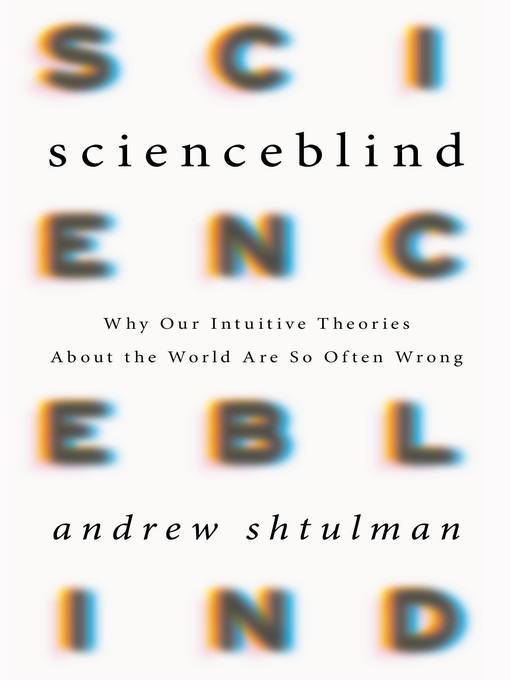
Scienceblind
Why Our Intuitive Theories About the World Are So Often Wrong
کتاب های مرتبط
- اطلاعات
- نقد و بررسی
- دیدگاه کاربران
نقد و بررسی

March 27, 2017
This timely, important, and well-crafted book by Shtulman, a professor of cognitive science at Occidental College, voices a convincing and unsettling argument about the persistence of science denial that has even broader implications for the state of public discourse. After noting that science denial is not a new phenomenon, Shtulman identifies a reason for its persistence that readers may not have suspected: intuitive theories, âour untutored explanations for how the world works.â These best guesses are often wrong, but they give people a reassuring sense that they understand more than they actually do. Several examples, such as the belief that heat is a thing that is transferred between objects rather than a process, provide ample support for his thesis. He observes that the danger posed by intuitive theories is compounded by the difficulty of moving beyond them when presented with contradictory evidence. Restructuring views is difficult, but not impossible, Shtulman maintains, if we âget our hands dirty in the details of the knowledge itself: the concepts that need to be differentiated, collapsed, reanalyzed, or discarded.â This thoughtful analysis merits a wider audience than it is likely to receive, but perhaps its lessons will reach educators and leaders who are in a position to spread them.

March 15, 2017
Shtulman (psychology & cognitive science, Occidental Coll., CA) argues that the common theories people have are usually wrong. These intuitive ideas, as psychologists call them, are based on behavior rather than science. He argues for these misconceptions to be changed by transforming them from their foundation. Shtulman organizes intuitive theories by the physical and biological world. For the physical, he devotes a chapter each to matter, energy, earth, cosmos, motion, and gravity. Shtulman discusses topics such as what the universe is made of, what makes objects move, and what causes continents to drift. For the biological, he dedicates a section each to adaptation, ancestry, growth, inheritance, life, and illness. He examines the reasons people look like their parents, how species are related, and how illness spreads. He argues that intuitive theories are developed as children, and that people must change the concepts behind these beliefs when they become adults. Although this book is thoroughly researched with a wealth of scholarly sources cited, Shtulman reaches a broad audience by investigating topics that everyone can understand. VERDICT Recommended for anyone interested in cognitive science, psychology, or general science.--Tina Chan, MIT Libs., Cambridge
Copyright 2017 Library Journal, LLC Used with permission.

























دیدگاه کاربران